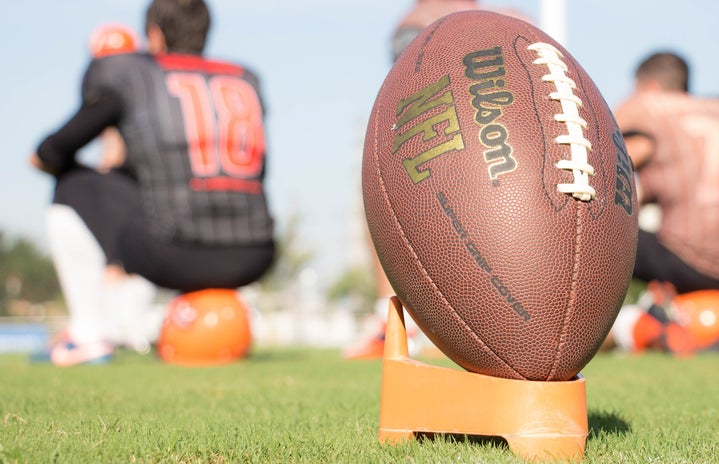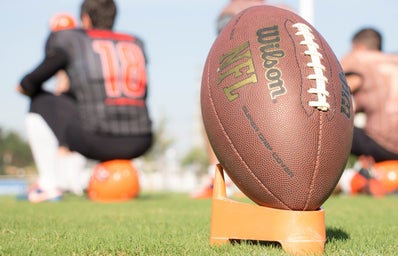Name: Clint Eiland
Hometown: Tarpon Springs, Florida
Year: Sophomore
Age: 19
Major: Classics and Communications
Relationship Status: Single
Clint Eiland spends most of his time working on sports journalism at Florida State. He is the Head Anchor of V89 Sports for FSU’s student radio station, The Voice. He also contributes to Noled Out. His articles can be read here.
Her Campus (HC): What are your main responsibilities as Head Anchor for V89 Sports and how did you get involved?
Clint Eiland (CE): I basically make sure that everyone is coming to their specific radio shifts. I’m an assistant to the Chief Reporter and Director of Sports. I got involved because I did broadcasting in high school. I created the broadcasting club and we worked with local channels to broadcast high school sports. I heard about the radio station and I thought it sounded like something I’d be interested in. Atleast half my day revolves around sports – whether I’m writing, reading or I’m at the radio station working. I thought it was going to be a side thing, and then I really started taking an interest to it.
HC: How would you describe your experience as a broadcast journalist for V89?
CE: It’s a lot less intimidating than people think. A lot of people think, oh I’m gonna choke. Honestly you’re just there having a conversation with your friends about sports. We talk about FSU and break down the past week’s sporting events and do a preview of FSU’s opponents then we do general news. It’s not anything foreign.
HC: What kind of articles do you write for Noled Out?
CE: Every week after a game, we identify the players we thought did best or made the most impact. We’ll get together and discuss stuff to contribute to an article. We have a pretty free reign besides that, we can do basically anything we want.
HC: What is your favorite thing to write?
CE: I like writing about the history of sports to give some context to where our program is today.
HC: Why is the history of FSU’s football program interesting?
CE: FSU is basically one-of-a-kind. We came up really recently. A bunch of programs like both our rivals, Oklahoma, Texas, all the blue bloods-those programs came around during the turn of the 20th century. FSU really only emerged in the ’60s and ’70s and then we became one of the most winningest programs of all times. We have accomplishments in 50 years that schools bigger than us haven’t accomplished in 120 years. We hit a grand slam with Bobby Bowden. He was a legendary coach that came around right when we got serious. We gave him everything he needed to build a program.
HC: In light of Bobby Bowden’s legacy, what is your opinion of Jimbo Fisher?
CE: It’s always weird because he’s never going to live up to Bobby Bowden. Theoretically he could become better if he exceeded everyone’s expectations. He’s already the second best coach in FSU history. At the end of his tenure, it’s going to be him and Bobby.
HC: So where do you hope to end up in the future? What would be an ideal career?
CE: I’d really like to be some sort of sports commentator. I wouldn’t mind doing local radio or TV. I want to be in a position where I can be known by people for my calls on the games. I also want to be a teacher of something. Maybe history or classics. I want to have some kind of education experience and to get somebody as interested in a topic as I was when I was that age. Because there were some teachers in my high school experience that made me fall in love with classics and history. I just want somebody else to feel that sort of passion.
HC: It seems like you have a passion for education. So why did you mention broadcasting first, and why do you see that as more of your ultimate career goal?
CE: I already have a ton of experience in sports broadcasting. I see myself having a better career in sports broadcasting – it’ll last longer, I’ll be generally more upbeat. I’ve heard about teaching and how sometimes it drains teachers. In an ideal world I’d be both.
HC: Do you have a favorite musical artist?
CE: The Weeknd. His poster is hanging over my bed right now. The Weeknd is basically the reincarnation of Michael Jackson infused with a sort of somber R&B feel. He’s basically carved out a genre that nobody has really ventured into. He’s the most talented musician of our generation. I saw him at Lollapalooza in 2011 before he became big.
HC: What is your favorite movie, and why should everyone watch it?
CE: My favorite movie is Saving Private Ryan. Saving Private Ryan is literally the ultimate war movie. It has the best balance of action, character development and pacing. War movies try very hard to have good pacing and usually fail at. You have to feel something when you listen to music, when you watch a movie. It makes me feel almost miniscule in a good way. It makes me recognize what sacrifices people had to make and it doesn’t glorify war in any way.
HC: You spend a lot of time writing and reading about sports, but if you ever have free time, what is your favorite work of fiction?
CE: My favorite book is Slaughterhouse-Five. It’s a book that should be read in order to understand that books are not bound by any sort of creative barrier. Slaughterhouse-Five is a groundbreaking book in terms of what books can be. The way he operates with the subject matter and how his characters react to what he throws at them, he says to show people what the characters are made out of. It makes us look at the characters and wonder: do I hate them? Do I love them? For some reason you still cheer for them and want to see what happens to them.


